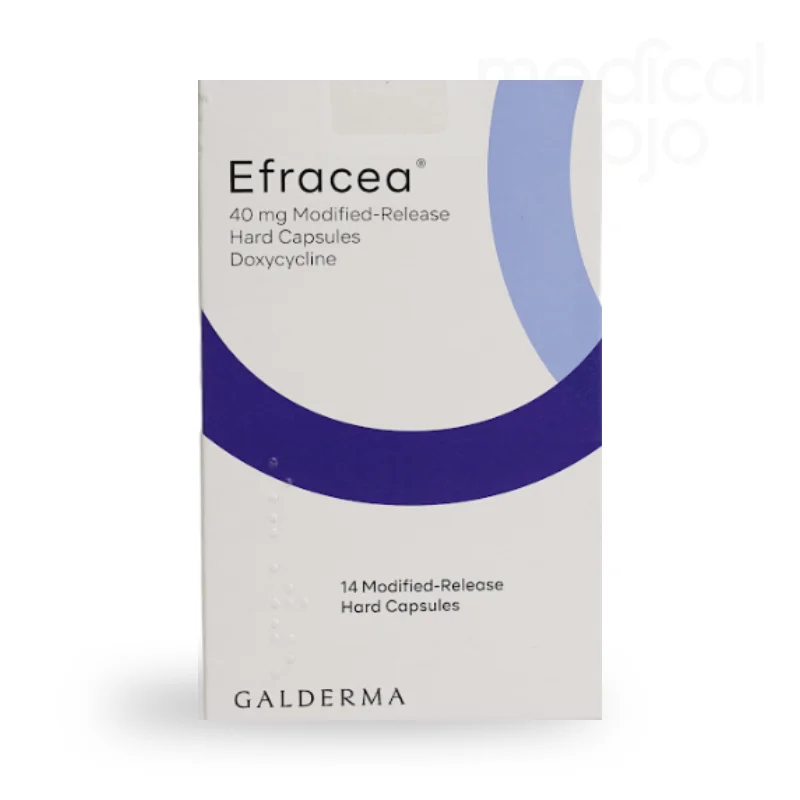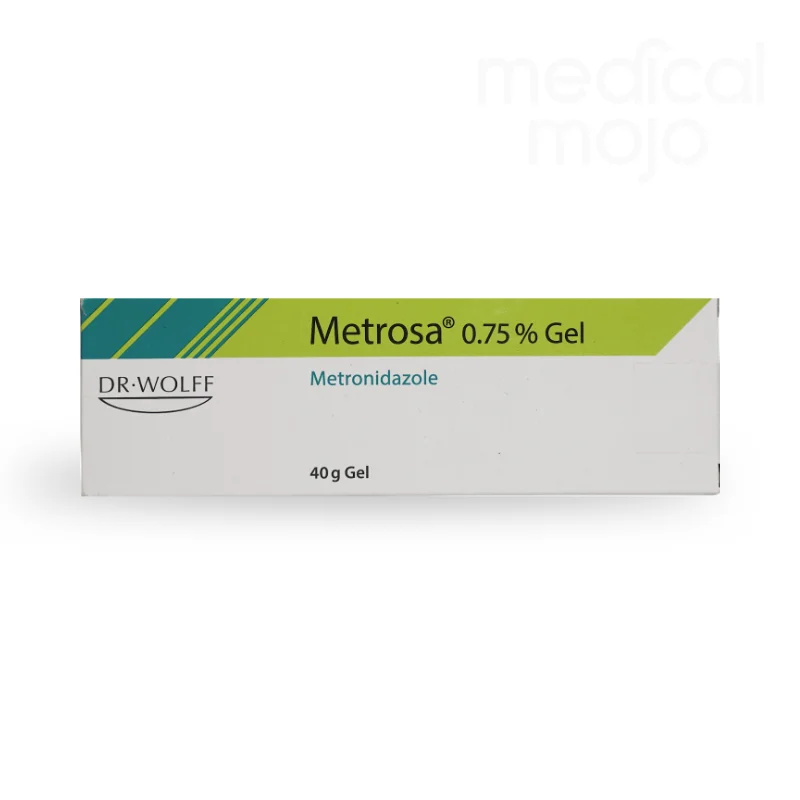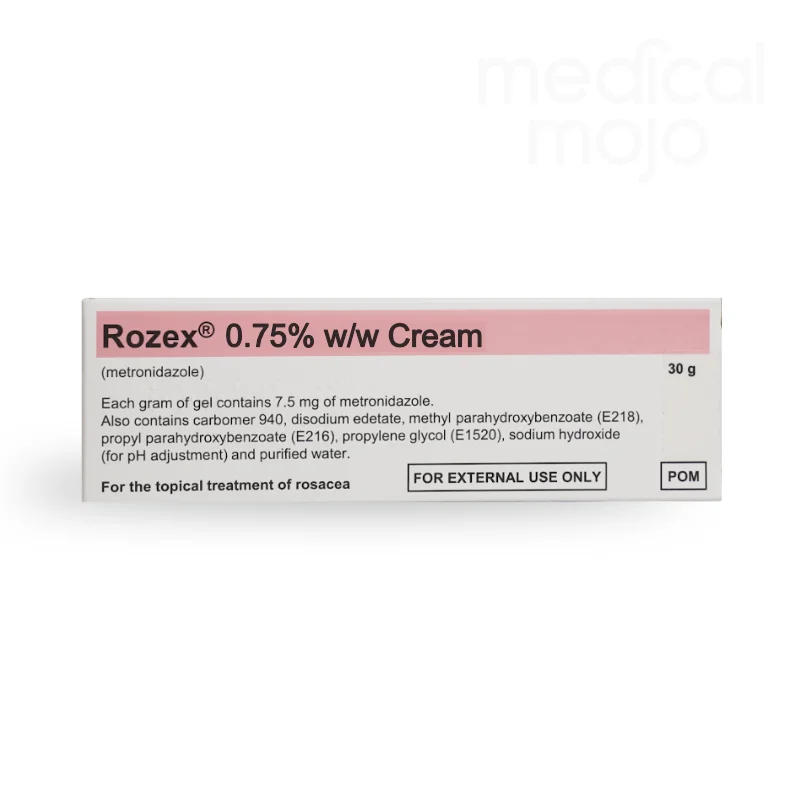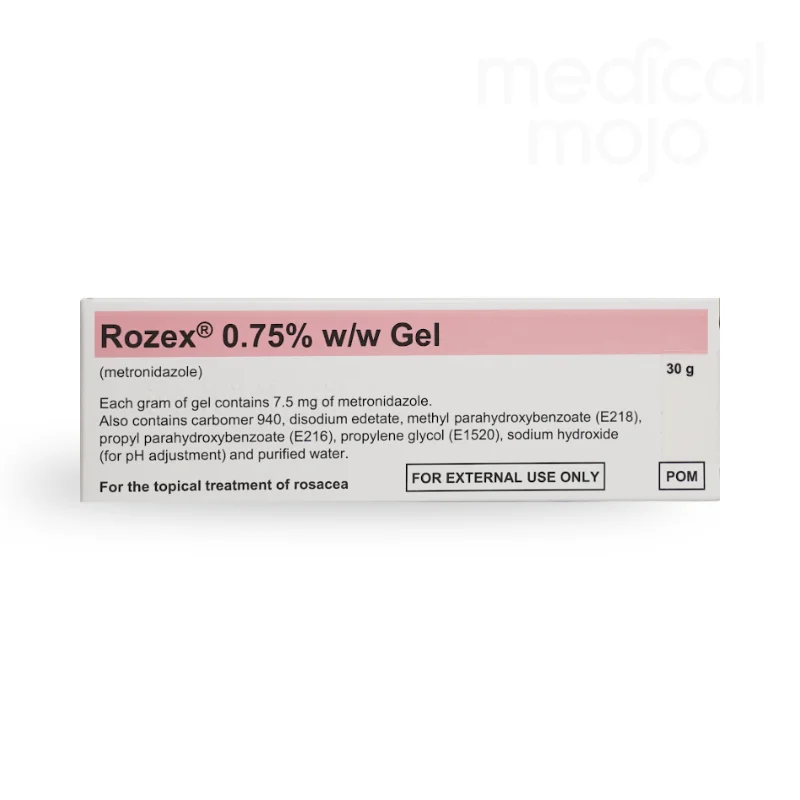What is Efracea?
Efracea capsules are a prescription medication used to treat rosacea, specifically targeting the pimples and red bumps that appear on the face due to this condition. The active ingredient in Efracea is doxycycline, a tetracycline antibiotic, formulated in a slow-release capsule. This medication is intended for adult use and is available only via prescription in the UK.
How does doxycycline in Efracea work?
Doxycycline is a tetracycline antibiotic that typically works by killing a wide range of bacteria. It is commonly used to treat bacterial infections in the skin, respiratory system, sexually transmitted diseases (STDs), and even malaria. However, in the case of rosacea, Efracea’s low-dose doxycycline primarily works by reducing inflammation rather than acting as a strong antibiotic. This makes it a safe, long-term treatment option for managing rosacea symptoms.
What is rosacea, and how does Efracea help?
Rosacea is a chronic skin condition that often affects the face, causing symptoms such as skin thickening, visible blood vessels, increased redness, flushing, and small, raised spots known as papules. In some cases, pustules, or pus-filled bumps, may also appear.
Efracea is effective in treating these rosacea symptoms. The low dosage of doxycycline in Efracea can be used safely over an extended period, helping to calm the skin, reduce redness and irritation, and, in some cases, eliminate rosacea symptoms altogether.
How Does Efracea Treat Rosacea?
Rosacea is often a lifelong condition that cycles between periods of activity and inactivity. Efracea works by addressing the inflammation that underlies rosacea, helping to reduce symptoms like thickened skin, visible blood vessels, abnormal redness, and flushing. It can also help diminish the appearance of papules and pustules. The low-dose doxycycline in Efracea reduces inflammation and irritation without the stronger antibiotic effects typically associated with higher doses of doxycycline.
What causes rosacea, and what are its triggers?
The exact cause of rosacea remains unclear, but it is believed to be linked to several factors, including dilated blood vessels due to sun exposure, tiny skin mites known as
Demodex folliculorum, and certain peptides in the skin that can become overactive and trigger an immune response. Common triggers that can cause rosacea flare-ups include:
- Alcohol
- Caffeine
- Dairy products
- Extreme weather conditions
- Long-term exposure to UV rays
- Stress
Can Efracea be combined with other treatments?
Yes, Efracea capsules can be used alongside other topical, non-antibiotic rosacea treatments to enhance effectiveness. Some common complementary treatments include:
- Soolantra Cream
- Finacea Gel
- Dermalex Rosacea Treatment
- Mirvaso Gel
These treatments target various aspects of rosacea, such as redness, inflammation, and pimples, providing a comprehensive approach to managing the condition.











